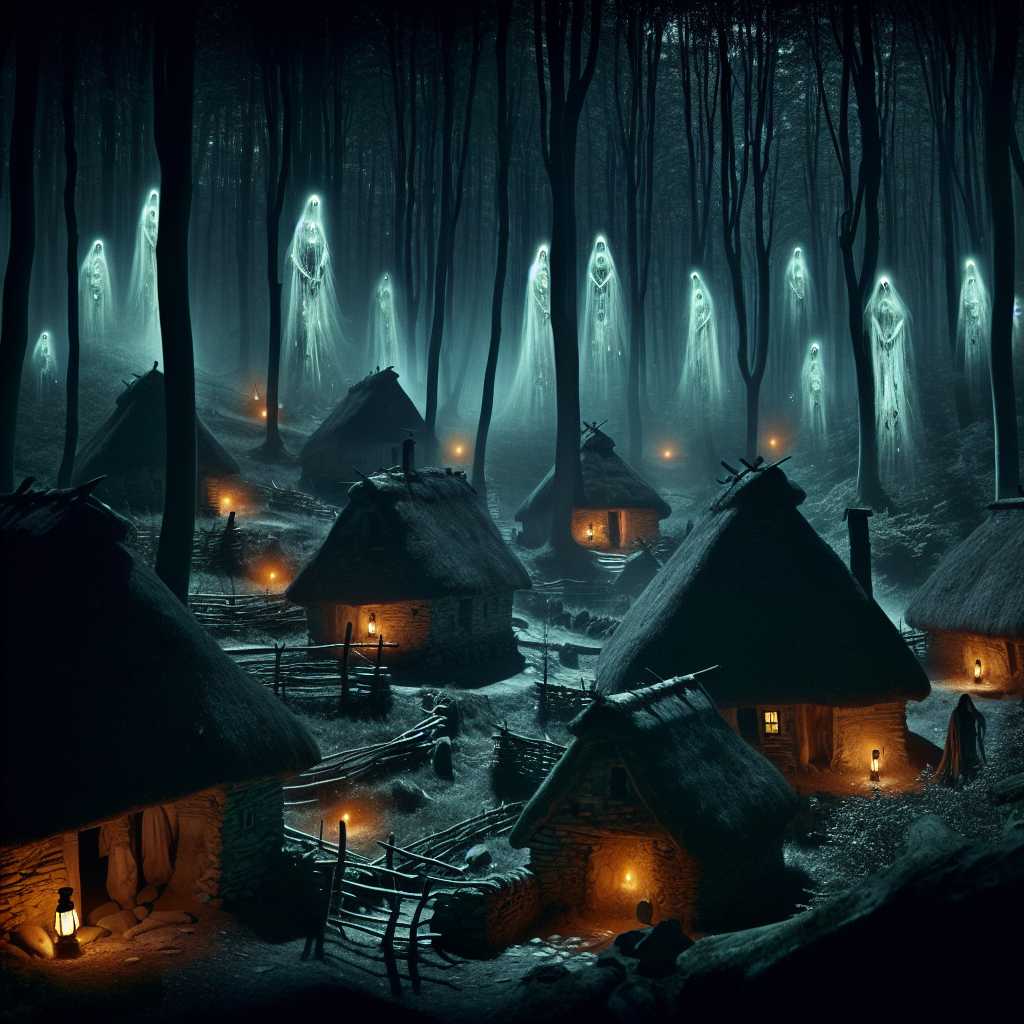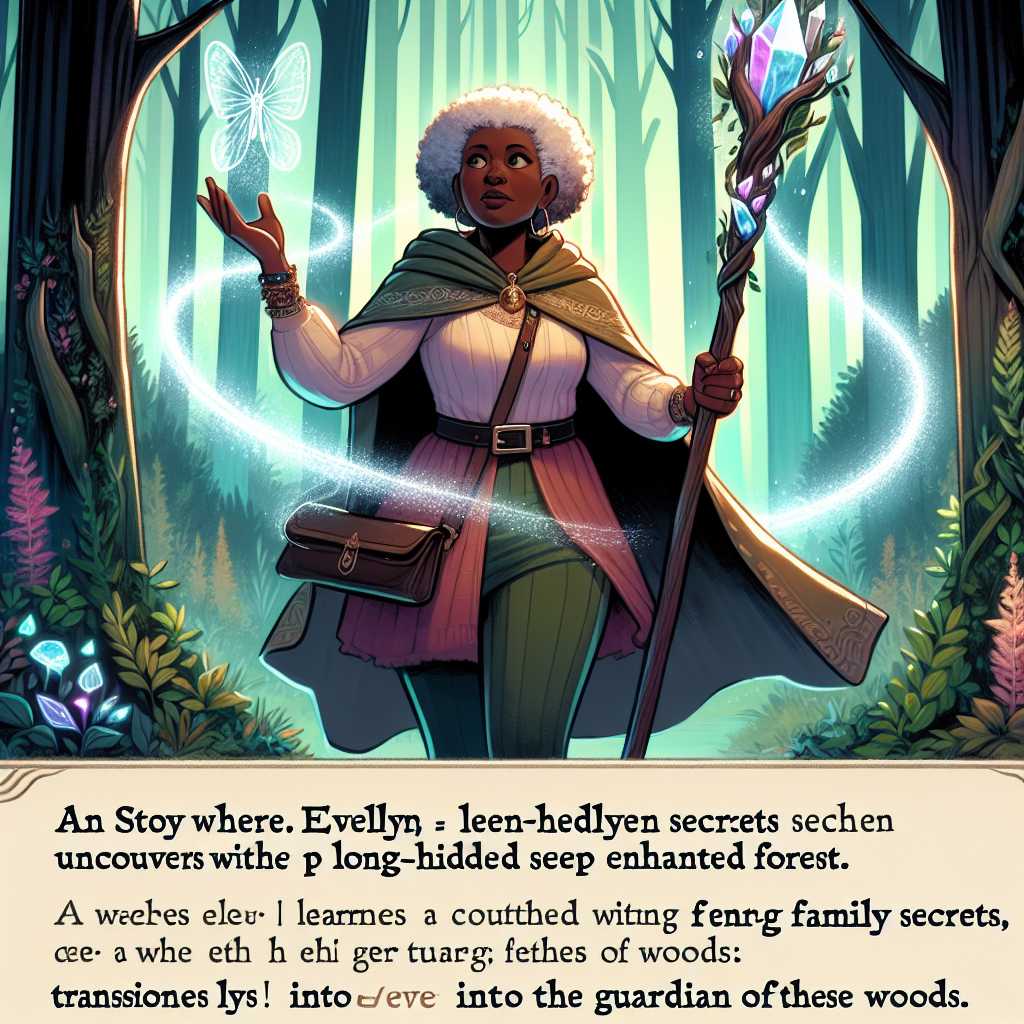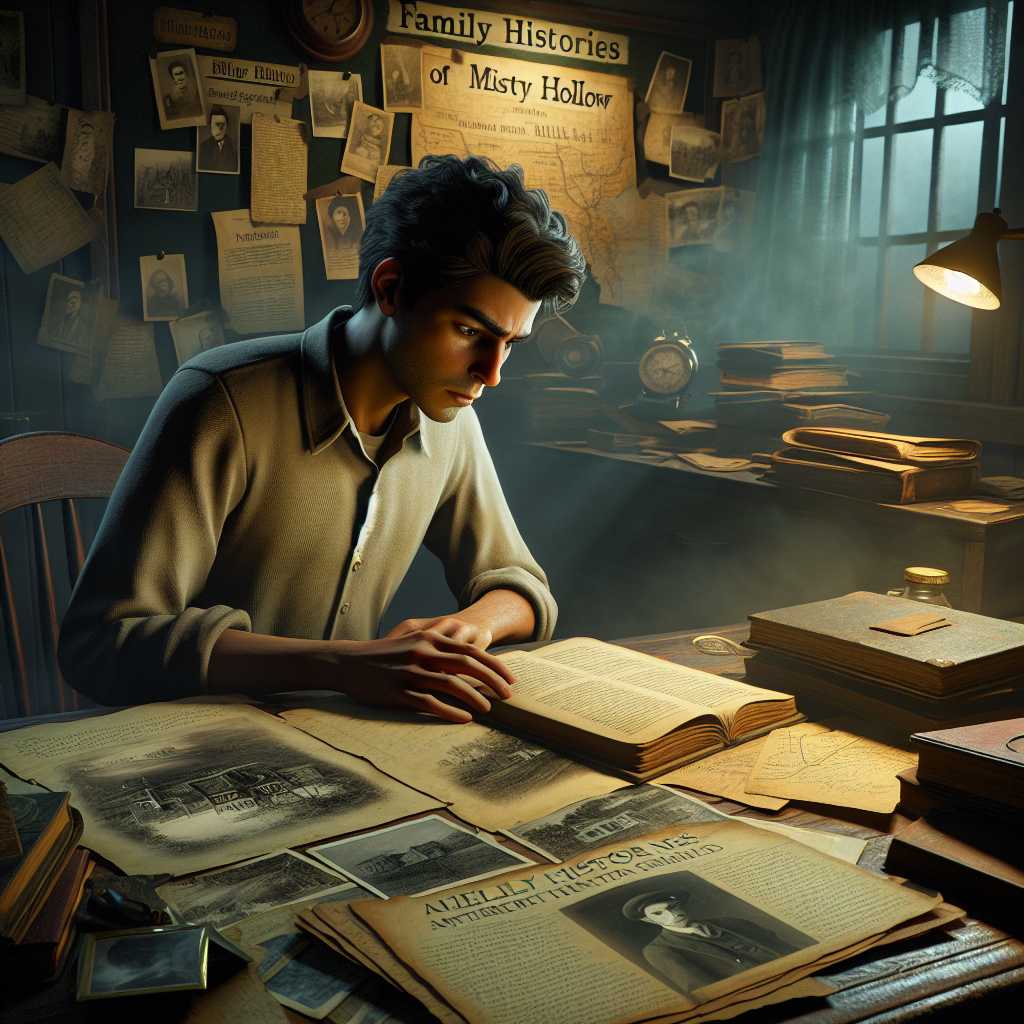
Elias's shop was the warmest place in the village—not only due to the blazing fire always burning in the corner but because of the warmth that emanated from Elias's own heart. Yet, as jovial as he seemed, Elias nursed a small sorrow: he had always dreamed of celebrating Christmas with a family of his own. Although his friends in Pinegrove were dear, when night fell on Christmas Eve, Elias found himself longing for the laughter of children and the companionship of a life shared.
One December morning, as the first snowflakes kissed the cobbled streets, a mysterious visitor walked through Elias's door; a woman with eyes as deep as winter twilight and hair like the silver of the star atop the village Christmas tree. She placed before Elias a pair of small, worn-out boots, and said, "Can you mend these in time for Christmas Eve? They belong to my son, who has nothing else to wear."
Elias, moved by the woman's plight, nodded eagerly. "Have them back by dusk tomorrow," he promised. The woman thanked him with a smile that seemed to light the room and disappeared into the snow, her cloak trailing behind her like a whisper of evening shadows.
That night, as Elias worked by candlelight, his fingers nimbly stitching and his heart wrapped in thought, he couldn't shake the image of the mysterious woman from his mind. The boots were so small and so worn; their owner must have journeyed many miles. Determined to make them as good as new, Elias labored long into the night, until the only sounds in Pinegrove were the soft hooting of an owl and the rhythmic tapping from the cobbler's hammer.
Finally, on Christmas Eve, the boots were transformed. They were now sturdy and warm, with soles as thick as a hymn book and laces like red ribbons. Just as the woman had promised, she returned at dusk. Her son, she said, would now have a merry Christmas, thanks to Elias. As she left, she handed him a small, crumpled piece of paper and whispered, "Should you ever long for company on Christmas, simply read these words aloud."
The night grew deep, and the village of Pinegrove was alive with sounds of merriment and singing, but Elias felt the pang of solitude more than ever. Remembering the woman's words, he unfolded the crumpled paper and read the inscribed message aloud. It was a simple, heartfelt poem that spoke of family, warmth, and gratefulness.
As the final stanza slipped from his lips, a gust of wind stirred the embers in the hearth, and the room glowed a deep, rich gold. Elias blinked, and to his astonishment, the room was no longer empty. Children, with cheeks as rosy as apples, were laughing by the fireside, playing with a pup that barked with joy. A woman, kind and loving, warmed a pot of chocolate on the fire, while an old man shared stories of Christmases long past. They were the spirits of Christmas, given form from the joy and love in Elias's own heart, conjured by the magic of the woman's poem.
With a voice filled with emotion, Elias greeted his mysterious guests. They enveloped him with cheer and not one of them was a stranger to his heart. They spent the evening singing carols, sharing stories, and feasting on mince pies and gingerbread. The warmth of love and the joy of companionship filled Elias's soul, and he realized that the family he always desired had been there all along, his heart simply needed to summon them.
As the clock tower chimed midnight, the spirits began to fade like the dying of the fire. The children hugged him, the woman kissed his cheek, and the old man gave him a knowing nod. Elias's eyes glistened with tears, but his heart was full. The spirit of Christmas had truly visited him, not in the form of flesh and blood, but born from the kindness of his own deeds and the depth of his longing.
The next morning, Pinegrove awoke to a white Christmas, the snow like a blanket of peace on the world. Elias opened his shop, his steps light, his smile brighter than the bells that jingled with every opened door. Throughout the day, villagers passed through, sharing pies, puddings, and stories, drawn by the affection they felt for the kind cobbler.
Years went by, and each Christmas, Elias would read the mysterious poem, and each time, the spirits would return, filling his home with laughter and love. In time, children of Pinegrove came to look up to Elias, and their parents remembered the man who had mended shoes and hearts alike. He became a symbol of the village, a herald of the spirit of giving and the joy of simple togetherness.
And so, in a small corner of the world, the magic of Christmas lived on, not just in the day itself but in the power of community, the warmth of charity, and the eternal hope that resonates within every act of kindness. This was the legacy of Elias, the cobbler, the kindling spirit of Pinegrove, where every Christmas was a story waiting to be told.
As the candles burn low and the hour grows late, let us remember the tale of Elias and take it to heart. In every good deed, there is magic to be found, and in every kind soul, the true spirit of Christmas resides, waiting only for us to give it a home.










